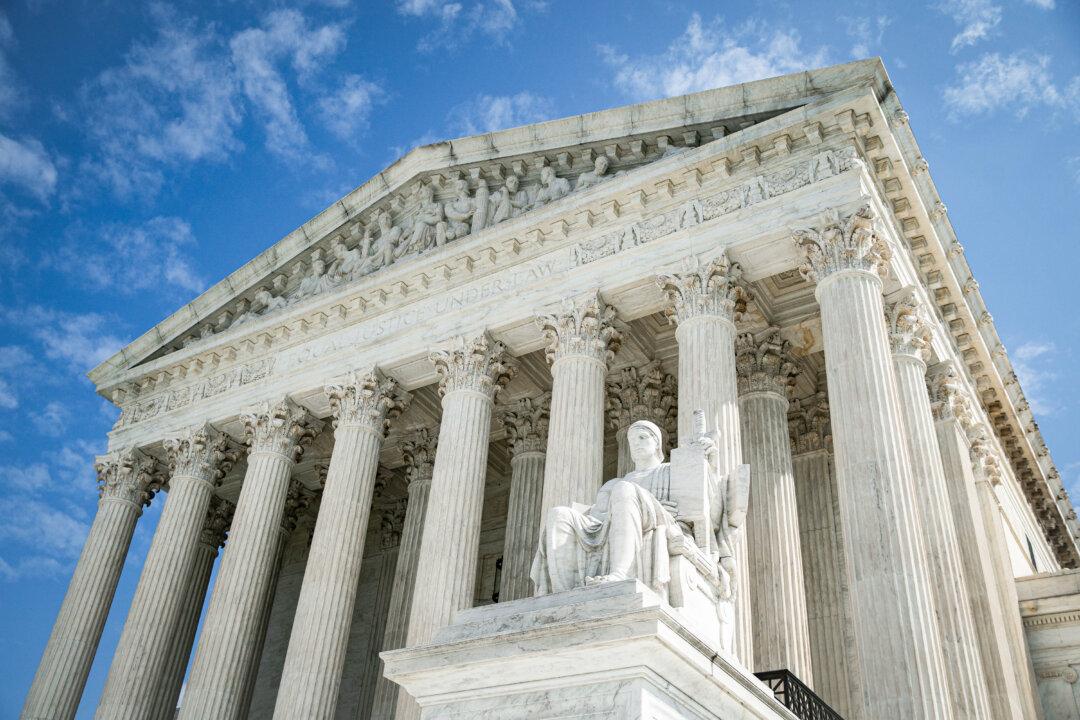Texas Gov. Greg Abbott said that he is planning to take his legal fight involving a border barrier in the Rio Grande to the U.S. Supreme Court, coming after a 5th U.S. Circuit Court of Appeals ruling last week.
“We will be seeking what’s called an unbuffed ruling by the entire district court of appeals,” the Republican governor said during Fox News’s “Sunday Morning Futures” program with Maria Bartiromo. “And if we lose there, we will take that to the United States Supreme Court because we know Texas has the right to legally deploy those buoys in the water to prevent people from entering our country and our state illegally.”





